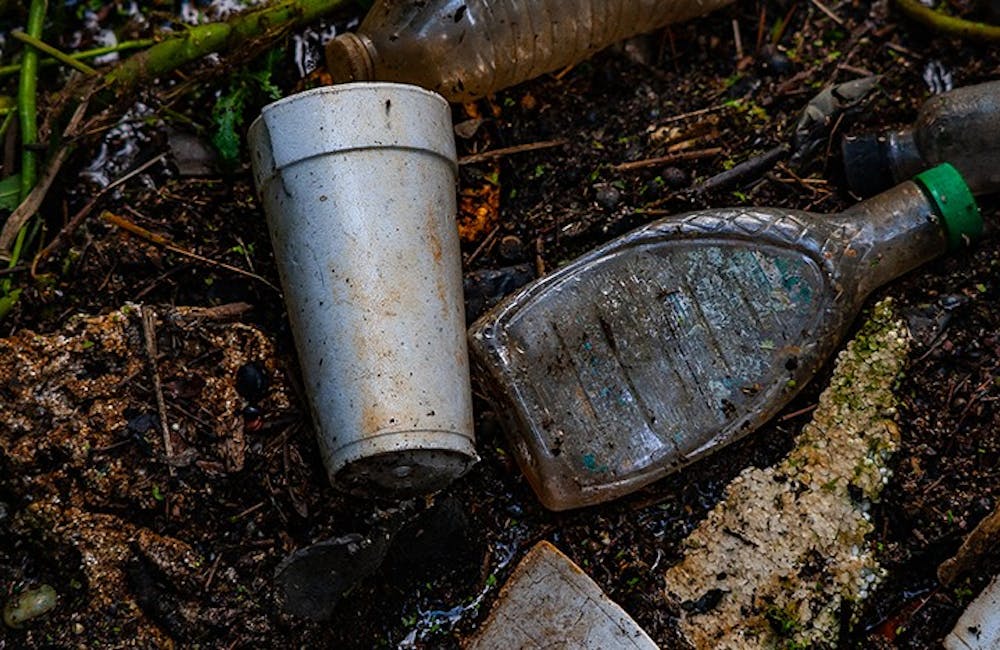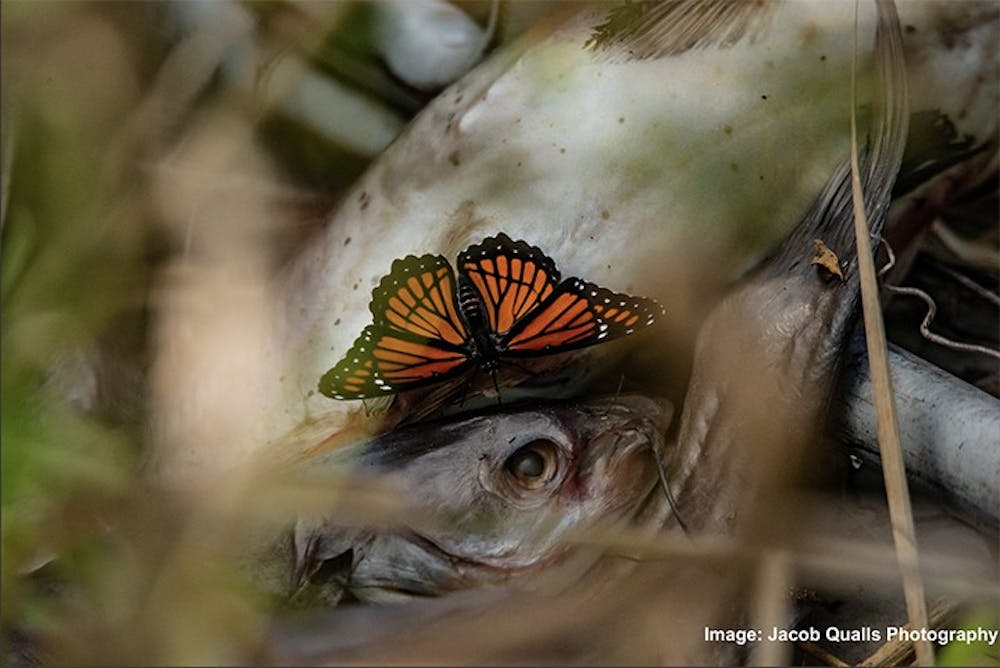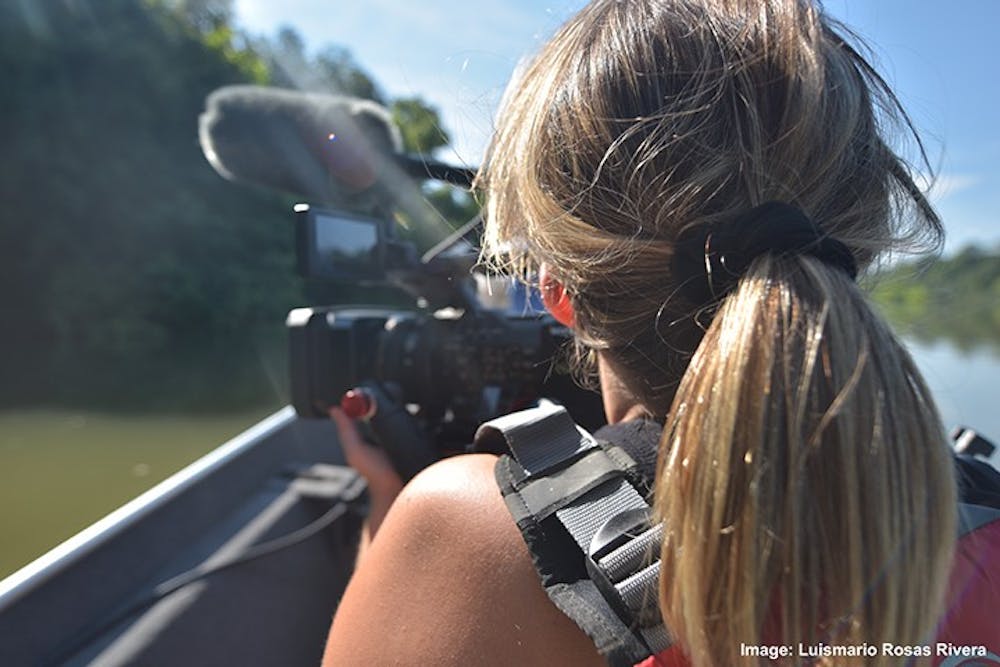Emma Deloughry, USC environmental health sciences graduate student, has always been a frequenter of Richland County's lakes and rivers. However, she said she began noticing trash and plastics littering the waters she knew and loved within the past couple years.
Curious about her findings, Deloughry attended a South Carolina Aquarium workshop in fall 2019 on plastic pollution in our local waterways.

"They had a lot of data to back up what was going on and that really piqued my interest, and I decided to try and pursue this opportunity and work with them," Deloughry said.
With this foundation, she decided she wanted her graduate thesis project to be a documentary on the macroplastics she had seen throughout the South Carolina waterways.
"I wanted to do a deeper dive into what's going on with this debris under the surface, how much is there and what are we doing about this," Deloughry said.
However, despite her ambitions, Deloughry said she had never made a film in any capacity before this project and had to overcome many challenges, such as COVID-19 and the laborious process of filming in South Carolina's swamps with a massive camera during the hot summer months.
"I mean, it was awesome, but it definitely was pretty difficult," Deloughry said.
It was throughout this filming process that Deloughry said she learned even more about the extent of the pollution.
"If I just zoomed in a bit, especially if we were near the water, we would find so much plastic waste," she said. "It's really sad, but I — it's a problem, and I wanted people to see that."
However, the visible elements of plastic pollution are far from the most consequential and detrimental.
"It's not just an aesthetic problem," Bill Stingler, the Congaree riverkeeper, said. "It's more than that, you know, it impacts wildlife and, certainly, can impact public health as we learn more and more about issues like microplastics. It has serious potential concerns for all sorts of things."

Stingler has been the Congaree riverkeeper for almost 10 years. He runs a local nonprofit that protects the broad lower Saluda and Congaree rivers by doing everything from collecting water samples to filing lawsuits to hold polluters accountable.
"We're finding microplastics in things like oysters, shrimp and even in beer," Stingler said. "You're telling me this afternoon I can't enjoy my oysters, my shrimp or my beer without worrying about there being plastic in it? That's incredibly concerning to me."
These impacts are further addressed on the website about macroplastics that Deloughry has created in conjunction with the documentary.
"The most basic thing you can do is just get the word out, and I think that was the real purpose of this documentary," Deloughry said.
The documentary also focuses on how plastics can be introduced to the waterways here in Columbia and how they have broader impacts that reach the Atlantic Ocean and beyond, according to Deloughry.
"Water that flows by the Edventure Children's Museum, goes down through the Congaree National Park, through Sparkleberry Swamp, through the Santee Cooper lakes, down the Tailrace Canal, through the Cooper River and ends up in Charleston Harbor adjacent to the aquarium," said Dwayne Porter, public health and health sciences professor at USC.
The documentary also shows what we can do to prevent the continuation of plastic pollution and how we can fix it.
"I think the most simple thing we can do — and this was kind of what my aim was with the film — is to encourage people to reduce their single use plastic consumption and be more mindful about what we're buying and consuming," Deloughry said.
This concept of refusing plastics entirely rather than simply encouraging people to recycle is something Stingler said he is also a proponent of. Stingler said we should add refuse to the age-old adage 'reduce, reuse and recycle.'
"There's this idea that, you know, if we recycle our plastics, it's going to take care of the problem, but the reality is most of that stuff doesn't get recycled, and we really need to stop plastics at the source," Stingler said.
Ultimately, Deloughry said plastic pollution will never be solved until corporations change their ways concerning the production of plastics.
"There are things we can do as consumers, but at the end of the day, we need to push for legislation that will hold these corporations accountable for their pollution," Deloughry said. "It's not fair to put that burden on us as consumers."

